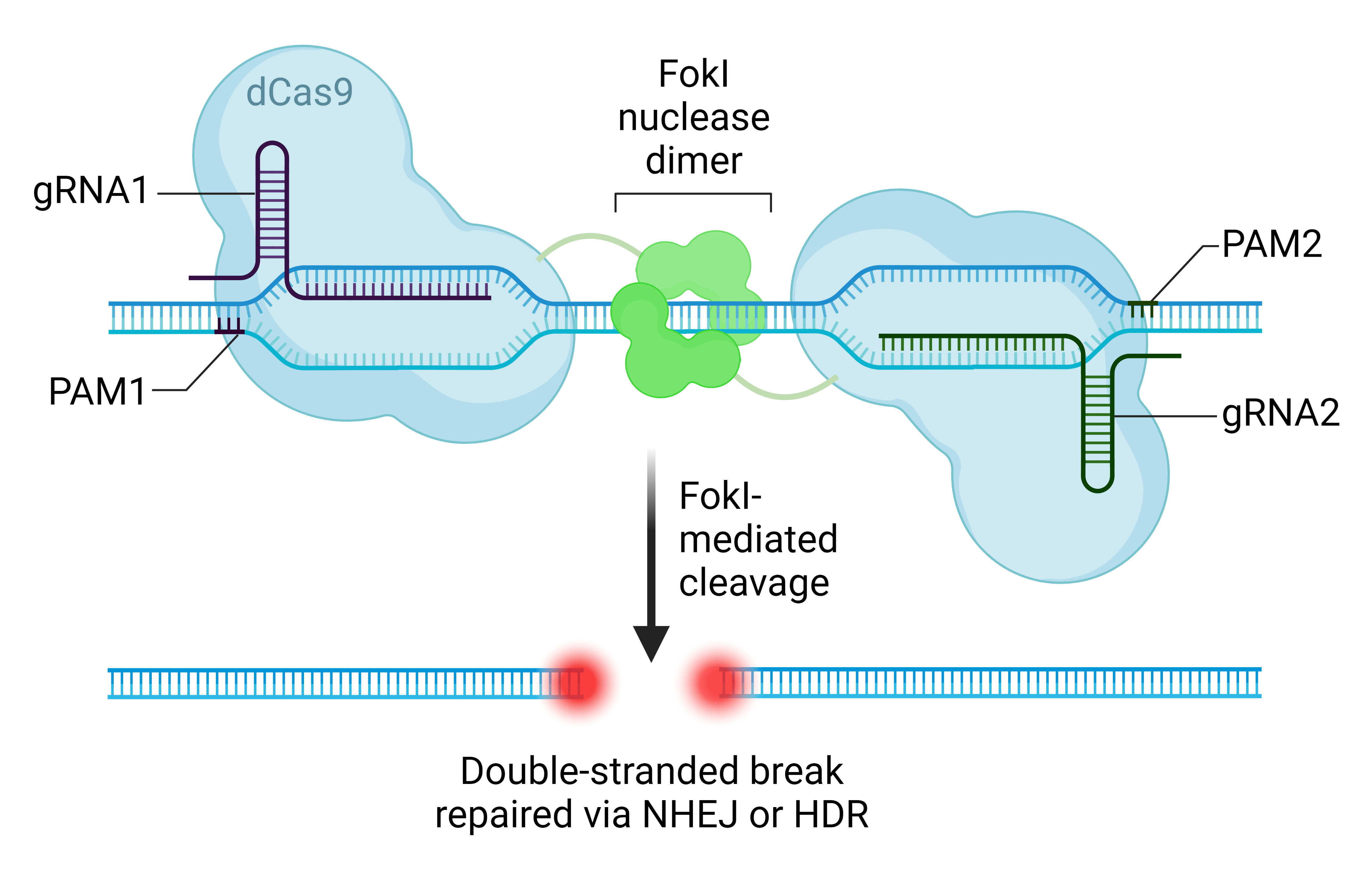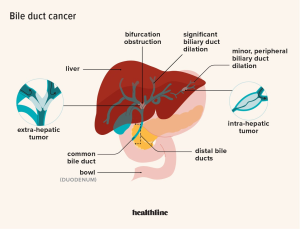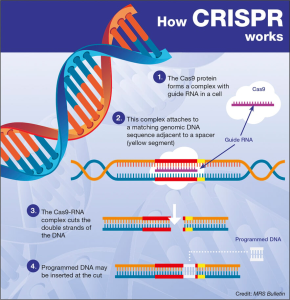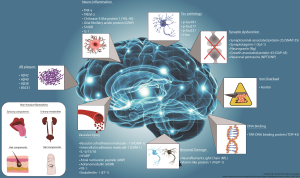
CRISPR gene editing has revolutionized the field of genetics, offering unprecedented precision in altering DNA sequences. This powerful technology allows scientists to target specific genes, providing hope for curing genetic disorders, including sickle cell disease. However, with great power comes great ethical responsibility, leading to intense discussions around gene editing ethics and the implications for health equity. As we explore the potential of CRISPR technology, we must also consider the bioethics of gene editing, particularly when it comes to editing out aspects of human variation. The promise of a cure must be weighed against questions of fairness, accessibility, and the long-term consequences of rewriting the genetic code of life.
The emergence of CRISPR as a pioneering method for genetic modification has sparked a broader conversation about the ramifications of altering an organism’s genome. Often referred to as gene editing, this innovative approach enables researchers to cut and rearrange DNA with remarkable accuracy, making it a beacon of potential for addressing inherited conditions such as sickle cell anemia. Yet, as we delve into this cutting-edge realm, critical dialogues arise surrounding the ethics of genetic manipulation, especially in relation to the concepts of bioethics and social equity. The implications of leveraging CRISPR technology extend beyond the lab, raising questions about who benefits from these advancements and whether they reinforce existing disparities in healthcare. As scientists continue to push the boundaries of what is possible, society must grapple with the moral complexities inherent in shaping the future of human genetics.
The Promises of CRISPR Gene Editing
CRISPR gene editing has brought about revolutionary advancements in medicine, particularly in the treatment of genetic disorders. One of the most promising applications of this technology is in curing sickle cell disease, a painful condition that affects thousands. By utilizing CRISPR to precisely modify the genes responsible for sickle cell, scientists have not only been able to ease the suffering of patients but potentially eradicate the disease altogether. Today, researchers are optimistic that with continued investment and research, CRISPR could lead to a future where genetic diseases are no longer a burden on individuals or families.
However, while the promise of CRISPR gene editing is immense, it is crucial to recognize the complexity behind its application. For instance, gene editing may provide solutions for numerous ailments, but ethical considerations loom large. The manipulation of genes—especially those that are heritable—raises questions that strike at the heart of bioethics. Who gets to decide which traits are desirable? The issue becomes more contentious when it involves diseases considered ‘compatible with life,’ such as Down syndrome. In pursuing the advances offered by CRISPR, society must carefully evaluate the moral implications inherent in altering human genetics.
Ethical Dilemmas and Gene Editing
The ethical landscape surrounding gene editing technologies like CRISPR is fraught with complexity. As innovators push the boundaries of science, they often face challenging dilemmas. Neal Baer’s discussion points to a fundamental question: should humanity intervene in its natural genetic variation? The potential to eliminate gene disorders may lead to a slippery slope, where societal pressure could drive individuals to conform to specific genetic standards, effectively sidelining natural diversity. This prompts a deeper examination of gene editing ethics, exploring whether the right to modify one’s genes could inadvertently instill a system that values certain traits over others.
Another facet in this conversation is the issue of health equity. With treatments like the CRISPR-enabled cure for sickle cell costing millions of dollars, accessibility becomes a pressing concern. This brings to light the disparity between socioeconomic classes regarding healthcare and genetic modification. As Baer highlighted, if only the affluent can afford such life-altering treatments, the gap between those who have access to cutting-edge medical technology and those who do not will only widen. Thus, as the potential for gene editing expands, so does the necessity for discussions on health equity and justice within bioethics.
Health Equity in Gene Editing
Health equity is a significant concern in the burgeoning field of gene editing, particularly as CRISPR technology continues to advance. The disparity in access to cutting-edge treatments can perpetuate existing inequalities in healthcare. The question arises, how do we ensure that innovations, such as CRISPR gene editing, benefit all populations, especially marginalized groups? If certain demographics, often due to socioeconomic constraints, are excluded from these life-changing therapies, we risk compounding systemic health disparities that uphold the cycle of disadvantage in society.
Moreover, the dialogue on health equity must include considerations of global implications. A CRISPR treatment developed in the United States may not be available or applicable in developing countries, further widening the global health divide. As researchers and policymakers grapple with these issues, it is imperative to create frameworks that not only facilitate innovation but also prioritize access and affordability. The ethical imperative is clear: we must advocate for inclusivity in gene editing advancements to promote fairness and justice in healthcare.
Bioethics of Gene Editing Technologies
The bioethics surrounding gene editing technologies like CRISPR is increasingly gaining prominence as the science evolves. Engaging discussions at institutions such as Harvard highlight the need for bioethical frameworks that align technological advancements with moral responsibility. This entails a multifaceted approach that considers patient autonomy, societal implications, and potential unintended consequences. As clinicians and researchers delve deeper into personal genetic makeup, ethical considerations surrounding consent, oversight, and the interplay between technology and humanity’s shared moral values become crucial in guiding future developments.
Furthermore, the ongoing dialogue between bioethicists, healthcare providers, and the public is essential to navigate the nuanced landscape of gene editing. Examining case studies, such as the ethical debate surrounding genetic modification for aesthetic or non-medical purposes, offers insight into the broader implications of gene editing. As we stand on the precipice of genetic advancements, an active engagement in bioethical considerations will help ensure that our technological aspirations are matched with the societal values we hold dear.
Risks and Unintended Consequences of Gene Editing
While CRISPR gene editing heralds hope for curing ailments, it is not without significant risks and potential unintended consequences. As highlighted by Baer, interventions like gene editing can lead to changes that may affect numerous biological pathways in unpredictable ways. These ramifications are particularly evident in situations where genetic traits seemingly linked to diseases may have essential roles in other physiological functions. This raises the pressing question of whether humanity is prepared to accept the potential repercussions of altering genes that have evolved over millions of years.
Monitoring and regulation also emerge as critical components in managing the risks associated with gene editing. Without proper oversight, there’s a danger of unethical practices and rogue applications of technology, particularly in countries with less stringent regulations. The onus falls on the global scientific community to advocate for ethical standards that govern gene editing research and application. Proactive risk assessment and ethical scrutiny are essential to ensure that the promised benefits of CRISPR can be realized without compromising safety or ethical standards.
The Future of CRISPR and Genetic Engineering
Looking ahead, the future of CRISPR and genetic engineering holds immense potential for transforming medicine and improving human health. Ongoing research promises exciting possibilities, from creating customizable gene therapies to innovative strategies to combat a variety of genetic disorders. Moreover, as the technology matures, it may pave the way for advancements in broader applications including agriculture, biofuels, and environmental conservation. However, realizing this potential will require ongoing commitment to ethical standards and societal implications.
In this rapidly evolving landscape, public perception and engagement cannot be underestimated. Stakeholders, including researchers, clinicians, policymakers, and the general public, must participate in conversations about gene editing technologies. Developing a collective understanding of the promise and ethical challenges posed by CRISPR will be critical in shaping a future where genetic advancements are both innovative and responsibly integrated into society.
Decision-Making in Gene Editing
Decisions surrounding gene editing interventions are profoundly complex and often controversial. Baer’s discussion emphasizes the importance of having multifaceted dialogues that include diverse perspectives to inform policy decisions. Who decides which genetic traits are prioritized or modified? This question touches on ethical, cultural, and personal beliefs, highlighting the need for inclusive decision-making processes that respect human dignity and promote health justice. Engaging communities and stakeholders in these discussions may help bridge divides and lead to the construction of more equitable outcomes.
Additionally, understanding the implications of such decisions—particularly in areas like germline modification—requires robust ethical frameworks. As society grapples with the implications of potentially modifying future generations, it necessitates thorough debates on the moral responsibilities that accompany such power. Are we equipped to handle the future we could create? Building an ethical scaffolding to support gene editing practices will be crucial for ensuring responsible applications of this groundbreaking technology.
Innovation and Responsibility in Gene Editing
Innovation in gene editing presents a profound opportunity to tackle some of humanity’s most persistent health challenges. However, with this promise comes an unparalleled responsibility to wield such powerful technology ethically and conscientiously. Stakeholders must consider the long-term effects of gene modifications and their impact not only on individuals but also on families, communities, and future generations. A proactive stance on the ethical deployment of CRISPR is vital for fostering an environment where innovation can flourish without jeopardizing moral integrity.
Balancing innovation with social responsibility also necessitates multidisciplinary collaboration among scientists, ethicists, policymakers, and affected communities. By integrating diverse viewpoints into the development and application of gene editing technologies, a more holistic approach can emerge that prioritizes health equity and ethical considerations. This integrated framework will be essential for navigating the challenges and opportunities presented by CRISPR technologies in a way that safeguards both societal values and individual rights.
Global Perspectives on Gene Editing
The implications of CRISPR technology extend beyond national borders, highlighting the importance of global perspectives on gene editing. As various countries embark on their research journeys with CRISPR, differing cultural and ethical viewpoints shape the narrative around genetic modifications. Understanding these cultural nuances is key for global collaboration, as what may be acceptable in one context might be contentious in another. Acknowledging these differences can foster a richer dialogue and lead to more informed and respectful practices.
Moreover, international regulation and cooperation are critical in addressing the ethical concerns surrounding gene editing. Global governance mechanisms and collaborations can help ensure that advancements in gene technology are met with appropriate ethical scrutiny and oversight. Such initiatives will be crucial in maintaining a balance between innovation, social responsibility, and the ethical implications of gene editing, ultimately steering the field towards a future that benefits all of humanity.
Frequently Asked Questions
What are the ethical considerations surrounding CRISPR gene editing?
The ethical considerations surrounding CRISPR gene editing primarily focus on the implications of altering human genetics, including concerns about consent, potential long-term effects, and the impact on human diversity. Discussions often address whether it is appropriate to edit genes for conditions that are compatible with life, such as Down syndrome, and who decides what constitutes a ‘desirable’ trait.
How does CRISPR technology offer hope for curing sickle cell disease?
CRISPR technology offers hope for curing sickle cell disease by allowing scientists to edit the genes responsible for the disease directly within somatic cells. This form of gene editing can potentially alleviate the symptoms or even eradicate the disease in patients, leading to healthier lives and improved quality of life.
What role does health equity play in the discussion of CRISPR gene editing?
Health equity is a critical aspect of the CRISPR gene editing discussion, as advancements in gene editing may not be accessible to everyone. The high costs associated with treatments, such as the estimated $2.2 million for sickle cell disease, raise concerns about who will benefit from these technologies and highlight the risk of widening disparities in healthcare access.
Can CRISPR gene editing create unforeseen consequences in humans?
Yes, CRISPR gene editing can create unforeseen consequences as genes interact in complex ways within the body. Editing one gene may inadvertently affect others, leading to unexpected health risks. For instance, modifying genes related to cholesterol levels can have broader implications, affecting insulin production and other physiological processes.
What is the stance of bioethics on germline editing using CRISPR technology?
Bioethics raises substantial concerns regarding germline editing, which involves altering genes in embryos that will be passed on to future generations. Ethical debates focus on the potential for ‘designer babies,’ the long-term impacts on genetic diversity, and the moral implications of making irreversible changes to human DNA.
How does CRISPR gene editing challenge traditional views of human variation and diversity?
CRISPR gene editing challenges traditional views of human variation by prompting the question of whether certain traits, such as deafness or albinism, should be seen as conditions to be ‘fixed’ or as natural human diversity. This discussion encompasses the rights of individuals and the value of accepting diverse traits within the human population.
| Key Point | Details |
|---|---|
| Ethics of CRISPR | Discussion on whether gene editing should be used to alter human traits that are not life-threatening. |
| Costs of Treatment | The treatment for sickle cell disease with CRISPR is approximately $2.2 million, raising questions about who can afford it. |
| Health Equity | Access to gene editing technology disproportionately affects different populations, leading to concerns over fairness. |
| Parental Decision-Making | Questions arise about parental rights in choosing genetic traits for their children, particularly when considering variations like deafness. |
| Oversight and Regulation | Concerns about the lack of regulation in countries where gene editing may not be strictly monitored. |
| Unforeseen Consequences | Editing genes can have unintended effects on other biological systems and raises concerns about the complexity of genetics. |
Summary
CRISPR gene editing represents a groundbreaking advancement in medical science, offering potential cures for genetic disorders like sickle cell disease. However, it also raises significant ethical questions that must be addressed. From the morality of altering human traits to concerns over health equity and regulation, the implications of CRISPR technology extend beyond mere medical efficacy. As society navigates this complex landscape, it is crucial to consider the broader consequences of gene editing and to implement frameworks ensuring fairness and oversight.



